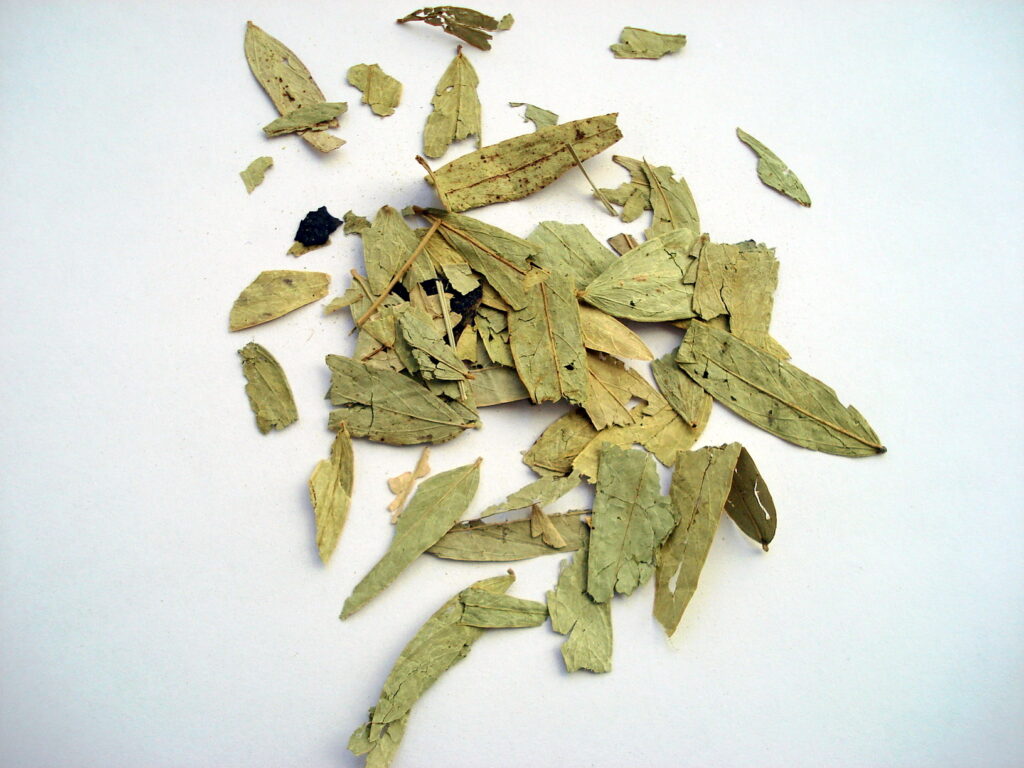In constipation management, most people seek natural remedies prior to medicines, as they fear side effects and lean more towards natural remedies. Among natural remedies, herbs for constipation became most prominent as they were averagely effective and mild in their system actions.
These natural remedies act in some ways to stimulate the digestive system, while some make the stool bulkier or make the stool softer, thus easy to pass. If you add some particular herbs to one’s diet, constipation symptoms could definitely subside in a natural manner and also improve the whole digestive system.
Effective Herbs for Constipation Relief
Senna
Of all the natural remedies, some herbs remain best known for curing constipation. Senna, in particular, is mostly referred to as one of the most effective herbs for constipation because it is derived from the leaves and pods of the senna plant. Its active ingredients, also called anthraquinones, stimulate intestinal muscles to push for bowel movements. You can take senna as tea or in capsule form as it is encouraged for short-term use due to its harsh laxative properties. However, use it cautiously due to the possibility of side effects like cramps and diarrhea when used in excess.

Flaxseed
Another useful herb is flaxseed, renowned not just for being a source of great nutrition but also for being a soothing laxative. High in fiber, flaxseeds soak up water, swell in the intestines, put bulk in the stool, and pass through more readily. Taking ground flaxseed with food or as a supplement ensures regular bowel elimination without uncomfortable side effects that chemical laxatives often bring. Flaxseed is especially useful for individuals seeking a food remedy for their constipation problem.

Psyllium husk
Psyllium husk also must be noted among the best herbs for constipation. As a soluble fiber, psyllium also absorbs water and becomes gel-like in form that helps to make the stool softer and regular. Readily available in capsule or powdered form, psyllium is best known for relieving constipation in a gentle manner that prevents dependency. It is, nevertheless, important to take lots of drinking water when you take psyllium in order to avoid constipation becoming worse.

Cascara sagrada
Cascara sagrada, from the bark of the buckthorn tree, is used as a stimulant laxative in the traditional sense. Like senna, it enhances the motility of the intestines and promotes bowel elimination. It is effective but you should use it sparingly and with supervision because long-term use could predispose to electrolyte imbalance or dependency.

It is easy and effective to use herbs in daily life. To take an example, when you brew a cup of senna tea in the evening, it prepares your bowel system for the following day. This helps ease bowel functions. Again, by including a spoon of ground flaxseed in your morning smoothie or oatmeal, you not only increase the neutral value of your breakfast but also add fiber. This is necessary for regular functions. Take psyllium husk by mixing it in a glass of water or fruit juice and drinking after meals. By doing so, you will have easy control of constipation all through the day.
Using Herbs for Constipation in Daily Life
Timing of taking herbs
Timing is important when it comes to using these herbs for best effects. It is best to take senna and cascara sagrada in the evening so their laxative actions can occur overnight, in tune with the body’s natural cycles, and perhaps by morning relieve morning discomfort. Conversely, consume fiber supplements such as flaxseed and psyllium with food to help with digestion. This also brings about proper hydrating and absorptive functions.
Dosage
Dosage is another important factor. Overuse of herbs like senna and cascara sagrada can lead to dependency or side effects like dehydration and electrolyte imbalance. So, start with the lowest effective dose and adjust according to response. For example, begin with a half teaspoon of flaxseed or a small serving of psyllium and gradually increase as needed. Always follow package instructions. Consult your doctor to adjust the dose to your needs.
Mixing different herbs for constipation
If you combine different herbs to treat constipation, you may be able to get balanced treatment. For example, using the mild bulking effect of psyllium with the stimulating effect of senna can offer great relief. However, it is important to take each herb separately first to monitor any adverse reactions and to make sure that you can tolerate it.
Safety and Precautions When Using Herbs for Constipation
While herbs for constipation are generally safe and effective, they can also cause some harm. This is especially true when you use it for long periods of time. They can interact with other medications. For example, senna and cascara sagrada can decrease the absorption and efficacy of certain medications. These include blood thinners and heart medications. If you have prescription medicines, you should consult your doctor before starting any herbs to avoid harmful interactions.
In addition, pregnant women should avoid stimulant laxatives like senna unless directed by a doctor, as they may cause harm to the fetus. Similarly, children and elderly individuals might experience side effects from herbs for constipation, because their digestive tract is more sensitive.
Side effects
Side effects are usually mild. They include abdominal cramps, diarrhea, and dehydration, particularly with potent herbs like senna and cascara sagrada. To decrease these risks, you should adhere to the recommended doses. It’s also important to consider starting with lower dose to test your tolerance to the herb. Take adequate fluids while using fiber-based herbs for constipation, ( flaxseed and psyllium), to avoid worsening of your constipation.
Conclusion
Herbs like senna, flaxseed, psyllium husk, and cascara sagrada are natural remedies for constipation. They improve regular bowel movements and improve digestive health. It is essential to consider timing, dosage, and interactions with medications, when you use any of them. Pregnant women, children, and the elderly should seek doctor’s advice use. Using these herbs in the right way and maintaining good hydration can lead to the required relief from constipation.

